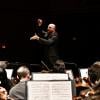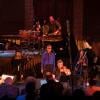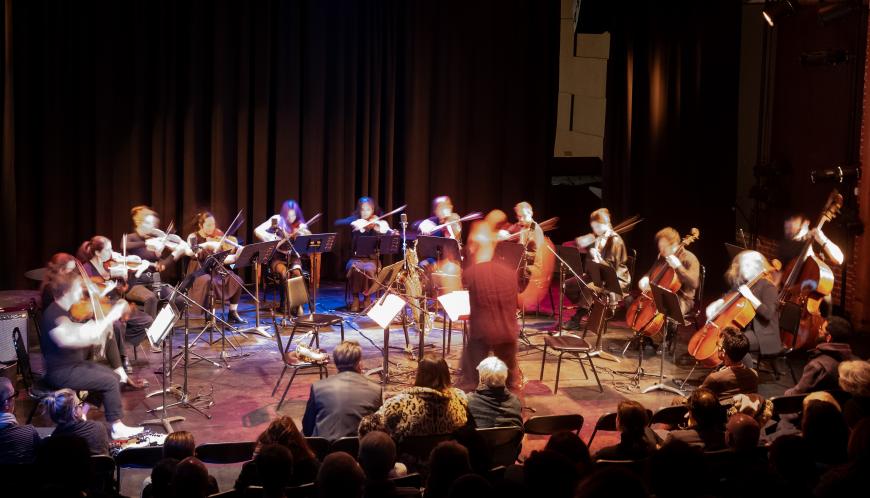
There is a visible happiness that pervades a group of artists who have found collaborators they trust and admire. You could feel it in the lobby of 2220 Arts + Archives as members of Wild Up mixed with each other, with friends, and with devoted concertgoers.
That regard among collaborators took center stage in a Friday evening concert, the first of two weekend shows that featured music by five Wild Up members. According to the group’s conductor, founder, and artistic director, Christopher Rountree, 15 of Wild Up’s 34 musicians are composers, and the group is on a mission to perform a piece by each of them.
Tackling works by Shelley Washington alongside several world premieres from Andrew Tholl, the ensemble played with palpable warmth and intuition; these musicians’ regard for their composer-peers was audible. But while moments in the lengthy program shone brightly, its ambitious scope left insufficient space to consider each composer’s most striking achievements.
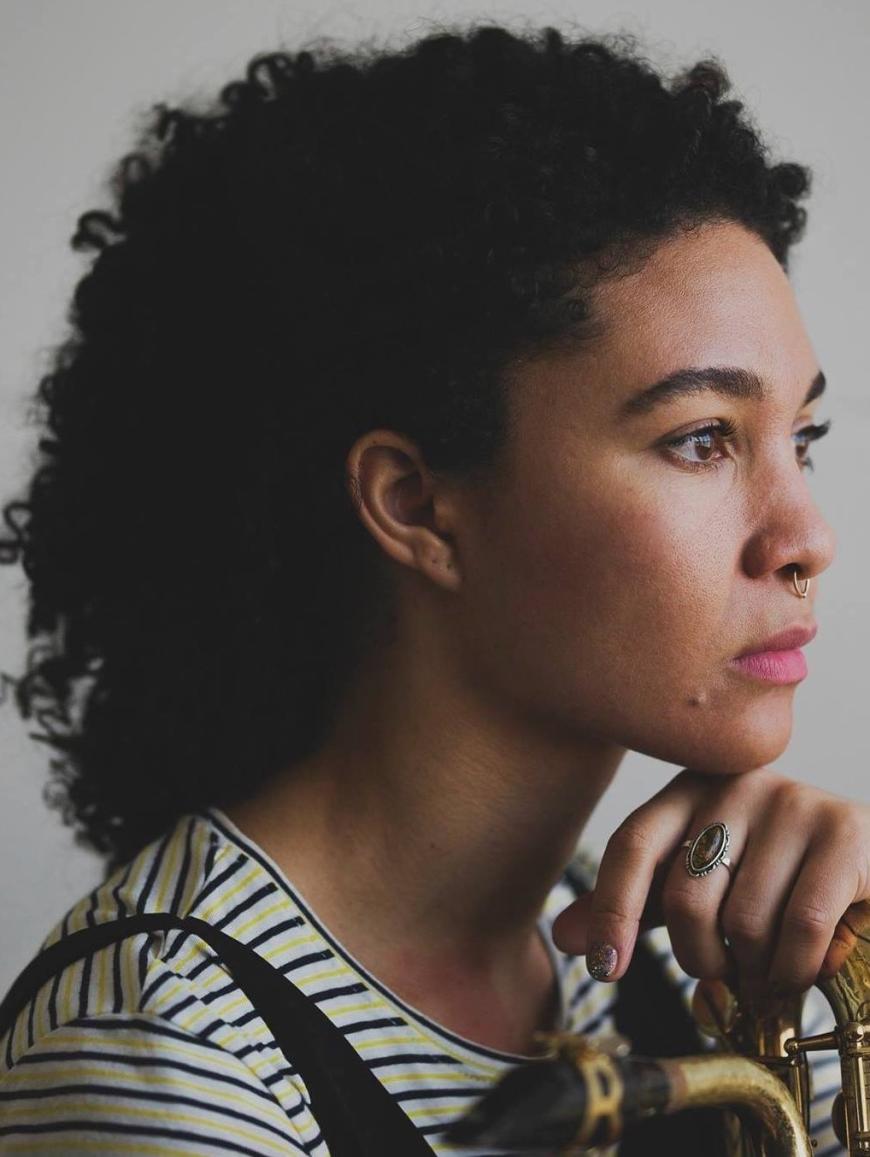
Washington’s new saxophone quartet Eternal Present finds her at her sharpest. The opening movement’s mournful chorale was full of pleading, sincere harmonies. Charming musical figures shared between the players animated a memorable second movement fugato. Saxophonists Marta Tiesenga, Brian Walsh, Pat Posey, and Patrick Shiroishi (the latter two sitting in but not Wild Up members) articulated overlapping entrances and surprising registral shifts with aplomb.
Those contrapuntal moments evoked Washington’s earlier work on the program. MO’INGUS, a solo bari-sax love letter to Charles Mingus and J.S. Bach, performed rollickingly by the composer herself, demonstrated Washington’s commitment to this musical language, even in her solo writing. The inventive connective tissue between the piece’s main motifs is delightfully conversational. However, the repetition of the work’s building blocks sometimes threatened to obscure the levity of its more spontaneous interludes.
In contrast, the evening’s opening performance of Washington’s Say, a string quartet here arranged for string orchestra, made too little of the piece’s recurrent elements. The ensemble’s stomps, snaps, and claps (which grounded the composition’s outer sections) lacked a truly percussive edge and could have spoken more strongly each time they occurred.
Tholl’s half of the program, performed as a continuous set, showcased Wild Up’s powers as the ensemble found elegant blends and highlighted novel timbral combinations. The composer, himself playing a solo role on violin in two of his four works, found an expressive touch with his urgent vibrato and careful maintenance of overtones while deploying scratch-tone bowing (putting hard pressure on the bow to create a rough, grating sound). This style seems to match Tholl’s bio page on Wild Up’s website, which reads in part, “His tempi are slower than yours, his bowings won’t match yours, and he’s made us crunchier in all the ways that are good and only two of the ways that are bad. We are brutal in the way that we’re brutal because of Andrew.” The quartet of Tiesenga, Walsh, Posey, and Shiroishi stunned again as they dovetailed, howled, and melted over a bed of eerie synthetic drones in Tholl’s Additional moments with possible windows of opportunity.
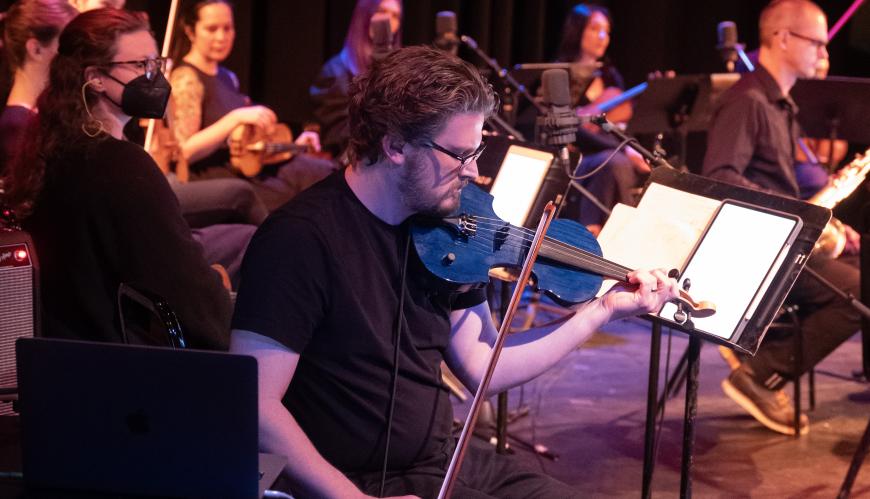
But the rollout of four of the composer’s works in succession also created an aural fatigue that made savoring these moments of invention more difficult. The protracted textural study that ended Selected moments with no potential for advancement lessened the impact of Additional moments’ opening salvo. Interstitial silence would also have allowed for a more detailed consideration of the differences in language between that latter piece and What summer taught me, I can’t recall, a similarly orchestrated work that followed. Finally, more space would have allowed the acoustic colors of the evening’s finale, Every moment is another opportunity to shine, to stand out more distinctly.
It’s understandable that Friday’s concert tried to say too much too quickly. We all have gushed for too long talking about a friend or peer we admire, and if the density of the evening’s program spoke to anything, it was that urge to share the work of loved collaborators loudly and proudly. Undoubtedly, this warmth will continue to animate Wild Up’s 2023–2024 “Endless Season” — though the group is five composers in, there are nearly a dozen to go.


